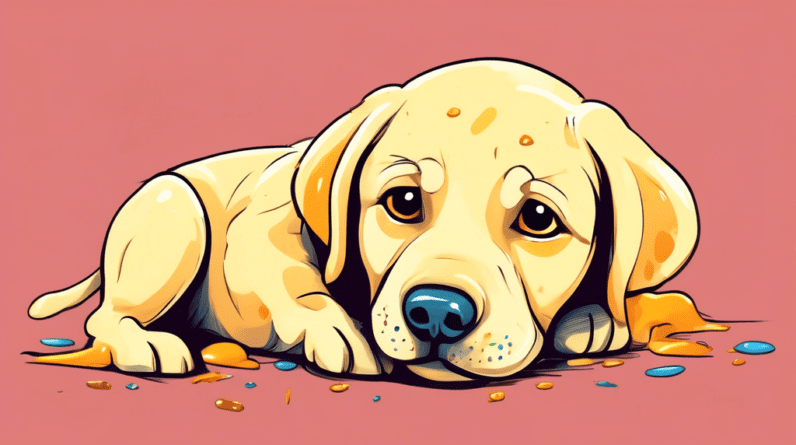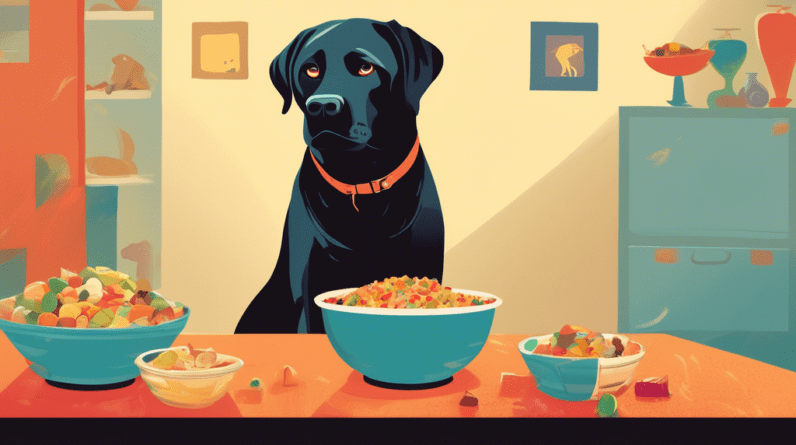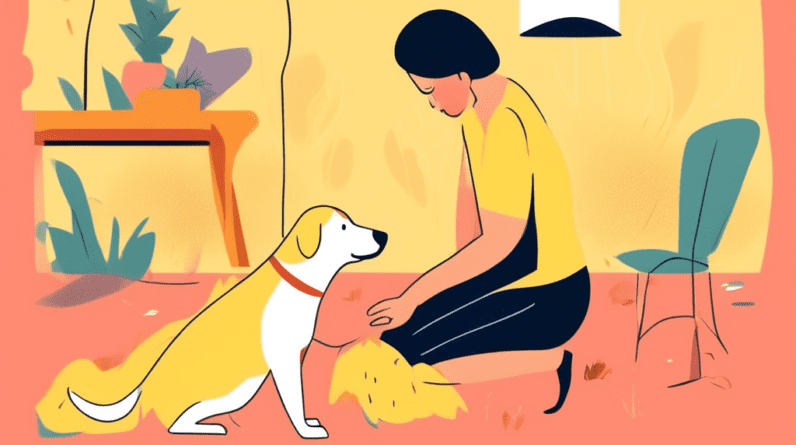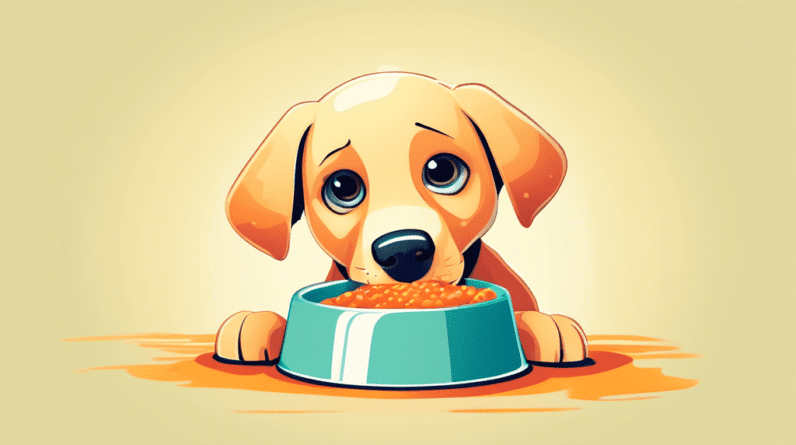
Why Is My Labrador Vomiting? Health Alerts for Concerned Dog Owners
Labrador Retrievers, with their playful personalities and boundless energy, are beloved family members. But when your usually exuberant Lab starts vomiting, it’s a cause for concern. Vomiting can be a sign of anything from a mild stomach upset to a serious health condition. Knowing the difference and when to seek immediate veterinary care is crucial.
Common Causes of Vomiting in Labradors
Labradors are notorious for having cast iron stomachs, often eating things they shouldn’t. Here are some common culprits behind your Lab’s upset tummy:
1. Dietary Indiscretion: The Scavenger’s Toll
Let’s face it, Labs are notorious for gobbling down anything they find remotely edible. This scavenging behavior often leads them to ingest:
- Spoiled food
- Garbage
- Toxic plants
- Foreign objects (socks, toys, rocks)
These items can irritate the stomach lining, leading to vomiting. In some cases, foreign objects can cause a blockage in the digestive tract, which is a serious medical emergency.
2. Food Changes and Sensitivities: Tummy Troubles
Switching your Lab’s food abruptly or feeding them something new can upset their digestive system. Like humans, dogs can have food sensitivities or allergies that manifest as vomiting, diarrhea, or skin problems.
3. Parasites: Unwelcome Guests
Intestinal parasites like roundworms, hookworms, and whipworms are common in dogs, especially puppies. These parasites live in the intestines and can cause vomiting, diarrhea, weight loss, and a pot-bellied appearance. Regular deworming is essential.
4. Infections: Viral, Bacterial, and More
Viral infections like parvovirus (especially dangerous in puppies) and canine distemper can cause vomiting, often accompanied by diarrhea, lethargy, and loss of appetite. Bacterial infections, such as salmonella, can also lead to vomiting and gastrointestinal distress.
5. Gastritis: When the Stomach is Inflamed
Gastritis, or inflammation of the stomach lining, can occur due to various reasons, including:
- Eating spoiled food
- Ingestion of toxins
- Certain medications
- Stress
Gastritis often causes vomiting, loss of appetite, and abdominal pain.
6. Bloat: A Life-Threatening Emergency
Gastric dilatation-volvulus (GDV), commonly known as bloat, is a life-threatening condition that primarily affects large, deep-chested breeds like Labradors. Bloat occurs when the stomach fills with gas and then twists, cutting off blood supply. This is an emergency that requires immediate veterinary attention.
When is Vomiting in Labradors a Serious Concern?
While occasional vomiting might not be a major issue, certain signs warrant immediate veterinary attention. Contact your veterinarian right away if your Labrador exhibits any of the following:
- Persistent Vomiting: Vomiting that lasts for more than 24 hours or recurs frequently.
- Bloody Vomit (Hematemesis): Blood in the vomit can range in appearance from bright red to dark, coffee-ground like.
- Projectile Vomiting: Forceful vomiting that projects a significant distance.
- Lethargy and Weakness: Lack of energy, reluctance to play, or difficulty standing.
- Abdominal Pain: Whining, groaning, arching the back, or reluctance to be touched in the abdominal area.
- Diarrhea with Blood: Loose, watery stools with blood, often accompanied by a foul odor.
- Fever: A rectal temperature above 103°F (39.4°C).
- Dehydration: Signs include loss of skin elasticity (skin tenting), dry nose and gums, sunken eyes.
- Collapse: Sudden loss of consciousness or inability to stand.
Diagnosis: Getting to the Root of the Problem
To determine the cause of your Labrador’s vomiting, your veterinarian will likely perform a thorough physical examination and ask about your dog’s medical history, diet, and any recent exposures. Diagnostic tests may include:
- Blood tests: To assess organ function, check for infection, and screen for underlying medical conditions.
- Urine analysis: To evaluate kidney function and check for urinary tract infections.
- Fecal examination: To detect the presence of intestinal parasites.
- X-rays: To look for blockages, foreign objects, or signs of bloat.
- Ultrasound: To visualize the abdominal organs and assess for abnormalities.
- Endoscopy: In some cases, a flexible tube with a camera is inserted into the esophagus, stomach, or intestines to visualize the lining and obtain biopsies if necessary.
Treatment: Helping Your Lab Feel Better
Treatment for vomiting in Labradors will depend on the underlying cause. Here are some common treatment approaches:
1. Addressing Dietary Indiscretion:
- Fasting: Your vet may recommend withholding food for 12-24 hours to give the digestive system a chance to rest.
- Bland Diet: After fasting, gradually reintroduce food with small, frequent meals of bland, easily digestible foods like boiled chicken and rice.
2. Managing Food Sensitivities:
- Elimination Diet: Your vet may recommend an elimination diet to identify specific food allergies or sensitivities.
- Prescription Food: In some cases, a hypoallergenic or hydrolyzed protein diet may be necessary.
3. Eliminating Parasites:
- Deworming Medications: Your vet will prescribe the appropriate deworming medication to eliminate parasites.
- Preventive Measures: Regular deworming and fecal examinations are crucial for preventing parasite infections.
4. Treating Infections:
- Medications: Antibiotics for bacterial infections and antiviral medications for certain viral infections.
- Supportive Care: Intravenous fluids for dehydration and medications to control vomiting and diarrhea.
5. Reducing Gastric Inflammation:
- Medications: Antacids, H2 blockers, or proton pump inhibitors to reduce stomach acid production.
- Dietary Changes: Feeding a bland diet and avoiding foods that can irritate the stomach.
6. Emergency Surgery for Bloat:
- Stabilization: Immediate stabilization with intravenous fluids and medications to decompress the stomach.
- Surgery: Emergency surgery is required to reposition the stomach and prevent recurrence.
Preventing Vomiting in Labradors: Proactive Steps for a Healthy Tummy
While not all causes of vomiting are preventable, you can take steps to reduce your Labrador’s risk:
- Supervise Your Dog: Labradors are notorious for eating anything they can get their paws on. Keep a watchful eye, especially during walks and outdoor playtime.
- Secure Garbage and Toxic Substances: Store garbage in secure containers, keep cleaning products out of reach, and be mindful of toxic plants in your home and yard.
- Feed High-Quality Food: Choose a high-quality, balanced diet appropriate for your Lab’s age and activity level. Avoid sudden food changes.
- Practice Food Safety: Don’t feed your dog table scraps, especially fatty, spicy, or cooked bones. Ensure food and water bowls are clean.
- Maintain a Regular Deworming Schedule: Follow your veterinarian’s recommendations for deworming medications and fecal examinations.
- Vaccinate Your Dog: Vaccinations can protect against viral infections that can cause vomiting.
- Manage Stress: Stress can contribute to vomiting. Provide a stable, loving environment, and consider calming aids if your Lab is prone to anxiety.
- Know Your Lab’s Normal: Pay attention to your dog’s typical eating habits and bowel movements. Any changes could indicate a problem.
When in Doubt, Contact Your Vet
Vomiting in Labradors, while often due to something minor, can sometimes be a sign of a serious health issue. Remember, you know your dog best. If you’re ever concerned about your Labrador’s health or notice any unusual symptoms, don’t hesitate to contact your veterinarian. Early detection and treatment are crucial for a positive outcome.






